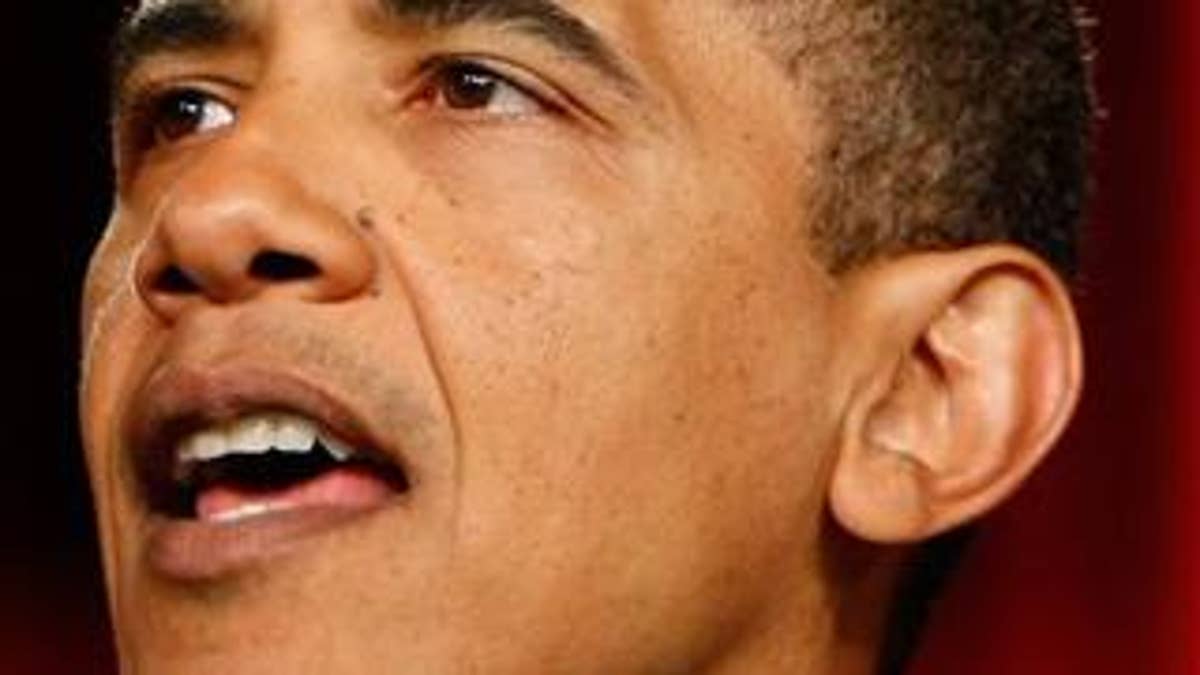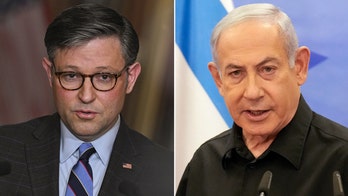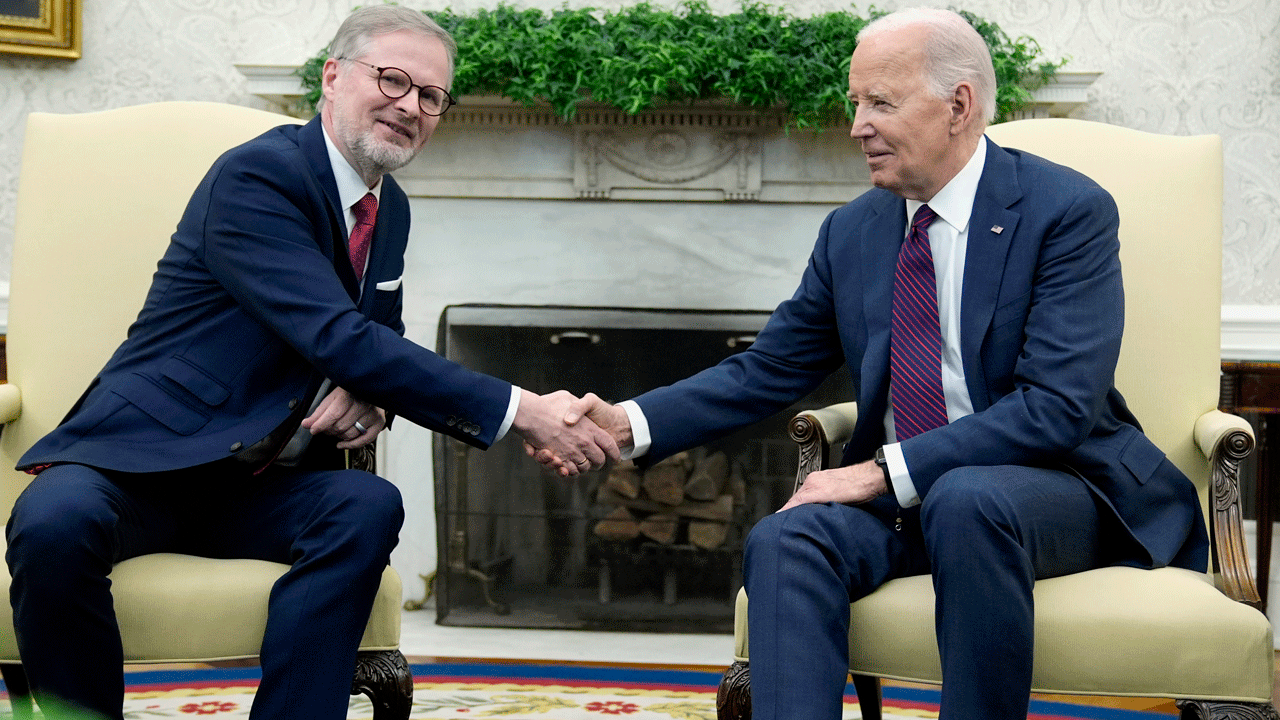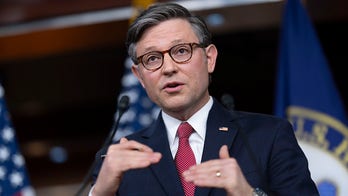
By some measures, President Obama's address to the Muslim world on Thursday bore striking similarities to the words of his predecessor, George W. Bush. But Obama's speech -- meant to bridge the divide between the United States and Muslims -- could mark the beginning of a new doctrine in U.S. foreign policy.
Speaking from the lectern in an ornate hall at Cairo University, Obama called for a two-state solution for Israel and Palestinians and noted deeply-rooted tensions between the U.S. and the Muslim world -- words all too similar to those of former U.S. presidents.
But Obama's views on building democracies abroad and the inevitability of a Palestinian state were a clear departure from Bush's -- positions that signal a new outlook on America's approach to the Middle East. Obama also made no reference to terrorists or terrorism, which has devastated several nations' efforts to modernize.
Among the most notable changes found in the "Obama Doctrine" that the president outlined in his remarks was the call for undemocratic countries to reform their regimes from within -- rather than having the U.S. "impose" a democratic form of government on foreign nations.
"I know there has been controversy about the promotion of democracy in recent years, and much of this controversy is connected to the war in Iraq," Obama said. "So let me be clear: no system of government can or should be imposed upon one nation by any other."
"The crown jewel of Bush's democracy agenda was Iraq," said Matthew Duss, research associate at the Center for American Progress. "The people in the Middle East don't want to see that experiment repeated in their own countries."
But some said Obama's speech embraced a weaker approach toward the pursuit of freeing people from autocracies -- one that raised questions about the U.S. commitment to human rights and freedoms in the Middle East.
"Why didn't he speak out for democracy in Egypt?" asked Marc Thiessen, a former speechwriter to Bush.
"He didn't say a word about democracy in Afghanistan, not a word about democracy in Iraq. So if I were a Middle Eastern person listening to the speech, I would wonder whether America is still committed to the freedom agenda," Thiessen said.
Ibrahim Al-Houdaiby, 25, a Cairo-based activist in the Muslim Brotherhood, which calls for Shariah law and opposes Egyptian President Hosni Mubarak, said the speech was a "step in the right direction." But he said he was disappointed that Obama seemed to gloss over the existence of "authoritarian regimes" throughout the region.
"He didn't mention any authoritarian regimes in the region," Al-Houdaiby said, including Egypt's regime in that category.
"There are tens of thousands of political prisoners who have nothing to do with violence and have nothing to do with terrorists" in Egypt and across the Middle East, he said.
Others, like Larry Sabato, director of the Center for Politics at the University of Virginia, noted few differences in the policies put forth in Obama's speech and those endorsed by his predecessor.
"In terms of foreign policy, it sounded more like continuity than change," Sabato said, adding that the key difference between Obama and Bush was the messenger, not the message.
Obama, who identified himself as a Christian in his speech, noted that his Kenyan father came from generations of Muslims. He attributed his convictions in part to his family background and work as a community organizer.
"As a boy, I spent several years in Indonesia and heard the call of the azaan at the break of dawn and the fall of dusk. As a young man, I worked in Chicago communities where many found dignity and peace in their Muslim faith," he said. The president also referred to himself as Barack Hussein Obama, which was taboo during the 2008 election campaign.
Another notable difference between Obama and Bush were his words on Iran -- and its pursuit of nuclear weapons. Bush labeled Iran one of three members of the "axis of evil," and he urged the U.N. to toughen sanctions against the Islamic Republic.
Obama, who has pledged to offer an extended hand rather than a clenched fist, called for a united front in dealing with Iran, but suggested Washington and all nations abandon their nuclear weapons systems along with Tehran.
"No single nation should pick and choose which nations hold nuclear weapons. That is why I strongly reaffirmed America's commitment to seek a world in which no nations hold nuclear weapons. And any nation -- including Iran -- should have the right to access peaceful nuclear power if it complies with its responsibilities under the Nuclear Non-Proliferation Treaty," he said.
"Our hand has been outstretched for five months, maybe longer," said Rep. Dan Burton, R-Ind., the ranking Republican on the House Foreign Affairs Subcommittee on the Middle East and South Asia. "We have gotten nothing in return, and Iran continues to move forward with nuclear program."
Obama's speech also differed from Bush in emphasizing a harder stance toward Israel's approach to the Palestinian issue. He said he plans to "personally pursue" an outcome "with all the patience that the task requires," and he noted that "the only resolution is for the aspirations of both sides to be met through two states."
Though the president described America's bond with Israel as "unbreakable," a long-held policy, he said, "Israelis must acknowledge that just as Israel's right to exist cannot be denied, neither can Palestine's."
Using the word "Palestine" adds further weight to the inevitability of an independent state, Duss said.
"He's putting up the right of the Palestinians to their own state as co-equal to the right of Israelis to a state," Duss said. "I've never seen any American president frame it like that."
Bush also called for the establishment of Palestine, beginning in 2002 at a speech in the White House Rose Garden in which he pledged the United States would take an active role in the peace process.
But his words effected little change, critics say.
Obama, on the other hand, has called for a West Bank settlement freeze, and he made explicit demands of the Israeli government during a visit with Israeli Prime Minister Benjamin Netanyahu in Washington last month. So far, Netanyahu has demurred, though his office carefully brushed over key differences highlighted in Obama's address.
"[Obama] has taken certain actions to show that there are policies behind these words," Duss said.
As for using the U.S. as an excuse for its ills, Obama, like Bush, warned Mideast nations not to seek an easy way out, said former Bush National Security Council spokesman Gordon Johndroe.
"Palestinians, Israelis as well as the rest of the Arab world, including the Arab League, we all need to work together on [peace]. Can't make any more excuses. That's something President Bush used to say as well," Johndroe said.




